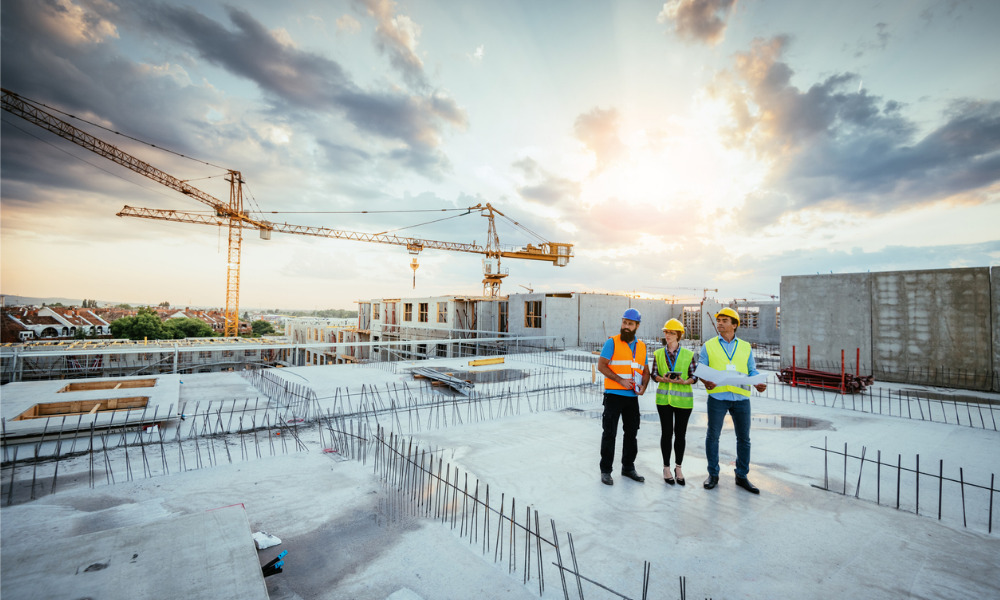But growth expectations by construction firms remain low for the year ahead

Construction activity continued to rise in October, with total industry activity growing at the fastest pace since May, according to the latest S&P Global CIPS UK Construction Purchasing Managers’ Index (PMI).
The PMI, which measures month-on-month changes in total industry activity, posted 53.2 in October, up from 52.3 in September and the highest reading since May. The index also continued to pick up from the 26-month low seen in July (48.9).
Higher levels of business activity were attributed to a combination of new project starts and strong pipelines of unfinished work.
Commercial building was the best-performing category in October (54.5), with output growth reaching a five-month high. Residential work also expanded (51.2), but at a softer pace than in September. Meanwhile, civil engineering activity decreased for the fourth consecutive month (48.5).
Subdued expectations
However, despite signalling a solid recovery in business activity from the downturn seen this summer, construction companies indicated that growth expectations for the year ahead remained very subdued.
The degree of optimism fell sharply since September and was the lowest for almost two and a half years, reflecting falling volumes of new work and worries about the longer-term UK economic outlook. Around 33% of the survey panel anticipate a rise in business activity, while 26% predict a decline. The resulting index signalled the lowest degree of optimism since May 2020.
Many companies commented on recession worries and a drop in UK economic prospects due to rising political uncertainty. Meanwhile, those reporting positive sentiment in October often cited tender opportunities in niche markets or opportunities related to infrastructure spending, especially green energy projects.
Read more: Construction sector holds firm despite economic downturn.
“Construction firms cited concerns about a broad-based decline in client demand due to cutbacks on non-essential spending among clients, although some noted that growth linked to green energy projects, planned infrastructure spending and success in niche markets could help to offset the UK economic headwinds,” said Tim Moore, economics director at S&P Global Market.
Little comfort
John Glen, chief economist at the Chartered Institute of Procurement and Supply, said October’s positive result “offered little in terms of comfort.”
"The housing sector lost some of its momentum creeping closer to the no-change mark and sitting in a precarious position as the recent interest rate rise will impact on affordability rates for new homes in the months ahead,” Glen added.
“The UK is entering a recession and higher borrowing costs are intensifying these challenges, which combined to drag down builder optimism about the year ahead to its lowest level since May 2020.”
Dorian Payne, director of Swansea-based property developer Castell Group, stressed that there were just not enough houses being built and demand was still there despite rate rises.
“Development will continue but the sales market will have to be more elastic and sensitive to pricing and perhaps require incentives,” Payne said. “A key focus for us, as a developer, will be trying to ‘forward-sell’ and lock in our sales to minimise market risk as much as possible. Hopefully vendor expectations for land prices will drop because they’re still far too high right now.”
Fraser Johns, finance director at Beard Construction, noted that while supply chain pressures may have softened slightly and recruitment improved, there are still challenges on the horizon, such as prolonged inflation impacting both material and energy costs.
“With the higher cost to borrow and tighter access to credit, it doesn’t come as a surprise to see a drop in confidence or the number of new orders, which looks likely to continue over the coming year,” he said.
“As ever, forging strong relationships and maintaining an open dialogue between all stakeholders will be absolutely vital in navigating the challenges we all face. It’s important we remain adaptable to deal with the obstacles in our path and to prepare ourselves for a possible drawn-out recession, albeit shallower than previously feared.”



